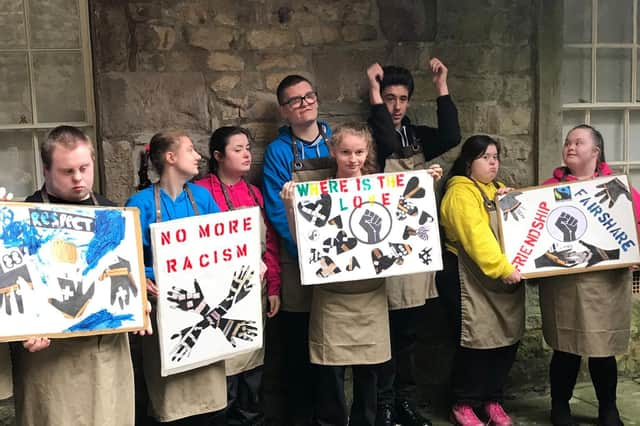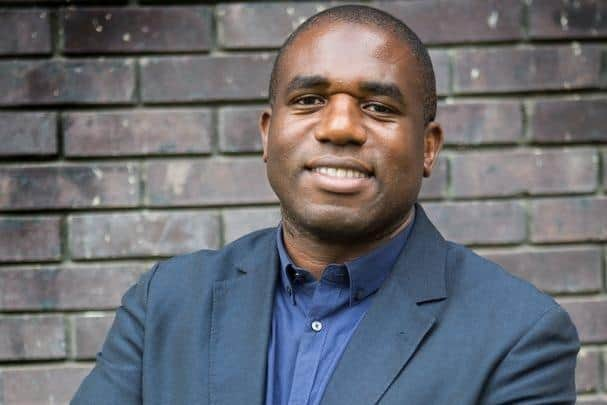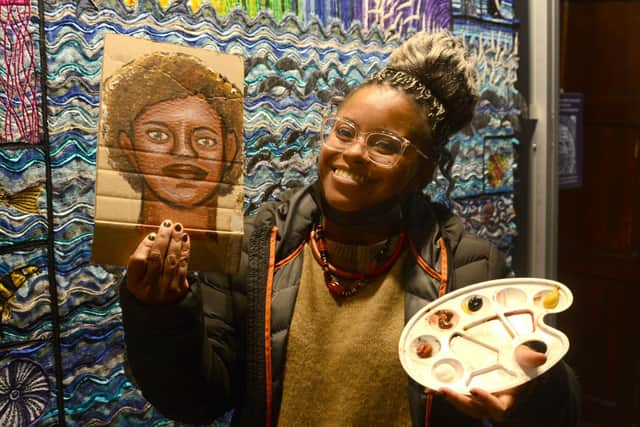Facing up to Lancaster's slave-trade heritage: 'We have to be honest about our history; we can't airbrush out the bits we don't like'


But it's Lancashire's inhumane profiteering from the brutal Transatlantic Slave Trade which echoes most tragically to this day. In fact, Lancaster was once the fourth-biggest slave trading port in the UK behind Liverpool, London, and Bristol, sending more than 180 slave ships out to sea and enslaving more than 29,000 African people between 1736 and 1807 alone.
At the head of the vile industry in Lancaster was the Rawlinson family, which became one of the wealthiest in Britain off the back of the suffering and deaths of thousands of slaves, some 15% of whom wouldn't even survive the tortuous voyage from Africa to the Americas. Those who did make it faced back-breaking 12-hour days, daily whippings, and rape.
Advertisement
Hide AdAdvertisement
Hide AdGrappling with such a profoundly murky aspect of the city's history is uncomfortable but vital. Which is where the Facing The Past project, a series of free community art workshops which aims to acknowledge the region's role in one of humanity's most shameful undertakings, comes in. And, when asked why the project is necessary, Andrew Nicholson is unequivocal.


"The answer is simple: people don't really understand Lancaster's slave heritage and the fact that so much of our history is bound up in the slave trade, which made Lancaster a very prosperous industrial town in the 19th century," explains Andrew, chair of Lancaster Priory Commissioning Group, which helped organise the project.
"Facing the Past is education in that we want people to know about our history, but it's not just about knowing, it's about making a difference with regards to current abuses rather than just beating our breast and saying 'what a terrible thing'," he adds. "If we can face the past, we can face the future and seek, in our own generation, to address modern day wrongs.
"The project is proactive in that regard."
During last summer's Black Lives Matter demonstrations, protestors spray-painted the words 'slave trader' across an 18th century monument to the Rawlinson family which stands outside Lancaster Priory Church. In response, the church - in collaboration with the Judges' Lodgings Museum, Black History Lancaster, and a number of other community bodies - created Facing The Past.
Advertisement
Hide AdAdvertisement
Hide Ad

"After the monument to the Rawlinsons was defaced last year, I was asked to chair a commissioning group to create a memorial to the victims of the slave trade in the Priory Church yard," says Andrew, 70, a retired teacher. "Families like the Rawlinsons were Lancaster's leading citizens at the time, but I think it's fair to say we're ashamed of the city's involvement with them.
"We want to do something about that through things like the Facing The Past project: that's the healthiest way forward," he adds. "I was very keen to get involved personally because I'm Lancaster born-and-bred and I'm proud of the city - it's where I've chosen to spend my life. But I think we ought to be honest about our history; we can't airbrush out the bits we don't like."
Funded by Arts Council England, the project has seen a number of educational outreach initiatives take place in local schools as well as workshops by artist Tina Ramos Ekongo, who was born in Equatorial Guinea and is now based in Manchester, during which she helped visitors create unique portraits of the victims of the slave trade.
"We've lots to celebrate and Lancaster has got a glorious history, but we had a very bad time in the 18th century when we got involved in the slave trade," says Andrew. "And, while we can't put the past right, we can make a difference in the future when it comes to concepts such as injustice, modern slavery, human trafficking, and dreadful working conditions.
"Such injustices resulted in the Black Lives Matter movement itself," he adds. "That just goes to show that there's an awful lot we need to put right in our own generation."
Comment Guidelines
National World encourages reader discussion on our stories. User feedback, insights and back-and-forth exchanges add a rich layer of context to reporting. Please review our Community Guidelines before commenting.